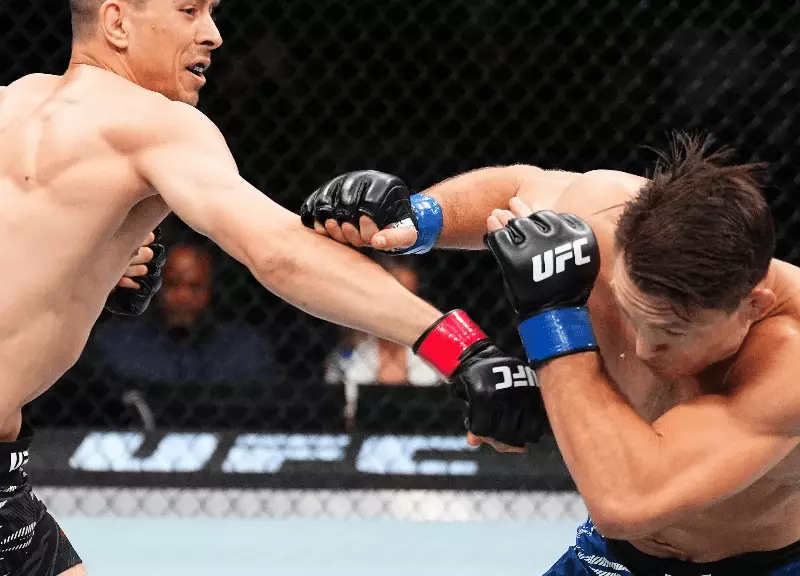In the world of mixed martial arts (MMA), referees play a crucial role in ensuring the safety of fighters. They are tasked with making quick decisions that can impact the outcome of a fight and, more importantly, the health of the athletes involved. A recent bout at UFC on ESPN 64 showcased this delicate balance when Manuel Torres faced off against Drew Dober. The incident raised substantial debate about the timing and effectiveness of referee Mike Beltran’s intervention, emphasizing the ongoing discussions surrounding fighter safety and referee decision-making.
What Happened in the Fight?
During the co-main event in Mexico City, Torres delivered a powerful straight right that knocked Dober down, followed by a barrage of hammerfists that continued until the referee stepped in. The fight concluded in a first-round TKO, but the question left lingering in the air was whether the stoppage occurred swiftly enough. As seasoned commentator John McCarthy pointed out on his “Weighing In” podcast, the timing of the stoppage should not be taken lightly. He illustrated that, while the referee’s instinct is often to let the fight play out to give each fighter their due opportunity, there are moments that demand quicker reactions to prevent unnecessary damage.
Breaking Down the Hammerfist Perception
One of the key points raised in this discussion is the often-underestimated power of hammerfists. McCarthy underscored that while some fans perceive hammerfists as less significant than traditional punches, they can still inflict serious damage. Research in the sport has shown that such strikes can generate considerable force, affecting a fighter’s ability to defend themselves intelligently. This idea directly challenges common misconceptions among fans regarding fight dynamics and defense mechanisms. Therefore, quick recognition of a fighter’s inability to protect themselves should hold more weight in the referee’s decision-making process than it currently does.
McCarthy’s Insights on Referee Decision-Making
McCarthy’s analysis highlighted how referees often operate under pressure, weighing their instincts against the desire to give fighters every chance to continue their bout. In an ideal world, referees would instinctively halt the fight the moment they sense a fighter is in peril. In the case of Dober, McCarthy was critical of Beltran’s delayed intervention. He noted that had Beltran acted on his initial instinct, Dober might have avoided additional punishing blows. This particular case serves as a reminder that whereas referees are often lauded for their expertise, they are also human and capable of misjudgments in high-stakes scenarios.
The Aftermath: Fighters’ Reactions
Following the fight, Drew Dober expressed his disappointment on social media, discussing the execution of the specific punches that led to his loss. Even though he embraced the moment with humor—pointing out the irony of suffering two embarrassing defeats in the same city—his comments reflect a sincere acknowledgment of the risks involved in the sport. Dober’s ability to maintain a positive demeanour, focusing on his family and health rather than the loss, adds a level of maturity to how fighters handle adversity. His candor highlights the emotional journey fighters undergo, both in victory and defeat.
The Implications for Future Refereeing
The Torres vs. Dober fight has significant implications for how future MMA events might address stopping bouts. This case brings to the forefront the need for clarity in what constitutes an intelligent defense and how referees should react in such situations. It raises questions about potential training improvements for referees, ensuring they can better discern these critical moments in fast-paced fights. As the sport evolves, so too should the protocols for officiating, focusing on enhancing fighter safety and refining the split-second judgment needed to protect athletes effectively.
Ultimately, this fight and its aftermath signal that every decision made in the heat of competition carries weight, not just for the fighters in the cage, but also for the integrity and safety of the sport itself. As conversations about adrenaline-fueled decisions continue, the necessity for refined referee training and heightened awareness of fighter safety cannot be overstated.

